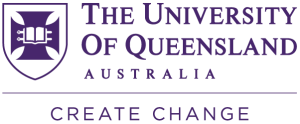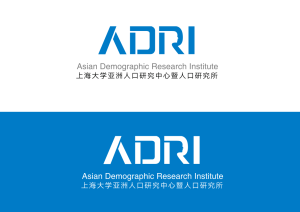IPC 2025 IS SUPPORTED BY
Thank You to Our Sponsors
Platinum Sponsors
About Us
Established in 2019, the Centre seeks to understand how Australia’s population is changing and the implications of these changes, vital to boosting living standards for all Australians. The Centre is part of the Australian Government Department of the Treasury.
Working with state and territory governments, academics and other population experts, the Centre builds Australia’s evidence base on population trends to inform public discussion. The Centre’s work supports business, industry and all levels of government to design policies and deliver services that meet community needs, now and into the future.
You can find the Centre’s valuable contributions in the Australian Government’s Intergenerational Reports and papers on various population topics including the drivers of internal migration, future fertility, and pathways from temporary visas to permanent residency.
To find out more, visit population.gov.au.
About Us
Welcome to the School of Demography
The ANU School of Demography is a world-class demographic centre for research and training in the Asia Pacific region. Our researchers and students examine some of the most important issues facing the world today.
Core research areas:
- Fertility, family formation and change
- Mortality, ageing and health
- Migration
Our purpose is to:
- Conduct demographic research of the highest quality
- Train world-class demographers at the undergraduate, Master and PhD levels
- Inform policy and the broader public in relation to major demographic issues facing Australia and its region
- Lead the discipline of Demography in Australia and its region
Gold Sponsors
About Us
As Australia’s national statistical agency, the Australian Bureau of Statistics tells the story of Australia through numbers. We inform Australia’s important decisions by delivering relevant, trusted, and objective data, statistics, and insights. This includes Australia’s official population estimates and other demographic data on births, deaths, migration and other social characteristics.
Visit www.abs.gov.au to learn more.
About Us
The Department of Home Affairs (Home Affairs) supports a prosperous, secure and united Australia through the management and strategic policy leadership of a range of functions, including immigration and multicultural affairs, as well as border security, cyber and critical infrastructure resilience and security and counter-terrorism.
Immigration and multiculturalism are central to Australia’s national story and identity. In times of change, immigration has helped Australia tackle national challenges and build long-term prosperity. Home Affairs is responsible for managing and delivering the migration, humanitarian and citizenship programs in a way that anticipates and responds to changes in both the domestic and international environments. This includes planning the migration intake to deliver sustainable levels of migration, while also attracting the skills needed to build the nation, supporting migrants and their families to reunite and contributing to global efforts to re-settle refugees.
Home Affairs also works to improve the lifetime wellbeing of migrants and refugees settling in Australia by delivering world leading settlement programs, that respond to specific needs and encourages independence and participation in the Australian community.
Home Affairs works to safeguard and sustain Australia’s democratic resilience, through cross-cutting policy, multicultural programs and grant programs that embrace multicultural diversity and help to deliver social cohesion outcomes. It engages with key multicultural stakeholders and communities, to ensure Australia’s multicultural policy settings reflect and respond to community needs and perspectives.
Collaborating Sponsor
Session Sponsor
About Us
The Australian Research Council Centre of Excellence for Children and Families over the Life Course (Life Course Centre) is a national research centre investigating the critical factors underlying deep and persistent disadvantage to provide new knowledge and life-changing solutions for policy, service providers and communities.
Bringing together multiple research disciplines, methods, data and collaborating partners, the Life Course Centre is uniquely positioned to track the trajectories and lived experiences of disadvantaged Australians of the life course and across generations, to identify the interventions at specific stages that can make a real difference, and to inform the development of solutions that can break the cycle.
The Centre is administered by the Institute for Social Science Research at The University of Queensland and is a collaboration with the University of Sydney, the University of Melbourne and The University of Western Australia.
Support provided by
Exhibitors
About Us
The Australian Institute of Family Studies (AIFS) is an Australian Government statutory agency that discovers what works for every kind of family to thrive. For more than 40 years our research has influenced major legislative and policy reform and helped service providers make a difference in the lives of Australian families.
About Us
With more than 35 years’ experience, the AIHW is Australia’s authoritative source of health and welfare data and analysis. The AIHW provides governments, stakeholders, and the broader community with valuable evidence to inform and support better research, policy, and service delivery, leading to better health and wellbeing.
www.aihw.gov.au
About Us
Asian Demographic Research Institute (ADRI) is a university-level research center under the School of Sociology and Political Science at Shanghai University. Established in 2015 through a collaboration between Shanghai University and the International Institute for Applied Systems Analysis (IIASA), ADRI assumed the role of headquarters for the Asian MetaCentre for Population and Sustainable Development Analysis (Asian MetaCentre) in 2016. Serving as a key platform for research, training, and academic exchange on Asian population and sustainable development issues, ADRI maintains extensive partnerships with academic institutions across Asia and beyond, as well as with international organizations such as IIASA. ADRI boasts a highly qualified faculty, consisting of 4 professors (including 1 Academician), 5 associate professors, 4 lecturers and 2 postdoctoral researchers. The demography program at ADRI recruits master’s and doctoral students with backgrounds in social sciences, economics, environmental studies, geography, medicine, statistics, and computational sciences, who are interested in interdisciplinary research on population and sustainable development.
About Us
Welcome to the School of Demography
The ANU School of Demography is a world-class demographic centre for research and training in the Asia Pacific region. Our researchers and students examine some of the most important issues facing the world today.
Core research areas:
- Fertility, family formation and change
- Mortality, ageing and health
- Migration
Our purpose is to:
- Conduct demographic research of the highest quality
- Train world-class demographers at the undergraduate, Master and PhD levels
- Inform policy and the broader public in relation to major demographic issues facing Australia and its region
- Lead the discipline of Demography in Australia and its region
About Us
The Australian Population Association is dedicated to advancing the study and understanding of human populations, with a particular focus on Australia and the Asia-Pacific region. Our mission encompasses the following key objectives:
- Promoting Research and Study: We aim to foster research into human populations, exploring their dynamics, challenges, and trends, particularly within our region.
- Creating a Collaborative Forum: The Association serves as a platform for discussion, encouraging dialogue and a deeper understanding of population-related issues.
- Encouraging Dissemination of Knowledge: We are committed to sharing population information widely, ensuring that insights and findings reach a diverse audience.
- Building Alliances: By liaising with other organisations with similar interests, we strengthen collaborative efforts in addressing population matters globally.
Through these efforts, we aim to contribute to informed decision-making and policies that benefit communities and foster sustainable development.
About Us
Our Mission
Founded in 1968, the Guttmacher Institute is a global leader in advancing sexual and reproductive health and rights. Through a unique and interrelated program of high-quality research, evidence-based advocacy and strategic communications, the Institute works to generate new ideas, encourage enlightened public debate, and promote sound policy and program development; its overarching goal is to ensure the highest standard of sexual and reproductive health and rights for all people worldwide. The Institute is engaged in building a more inclusive, transparent and equitable organization.
About Us
The IUSSP mission is to promote the scientific study of population, encourage exchange between researchers around the globe, and stimulate interest in population issues.
To further its mission, the IUSSP:
- organizes seminars and workshops to further scientific knowledge;
- organizes training and distance-learning activities to improve the research capacity;
- organizes the International Population Conference every four years to bring together world specialists in the field;
- publishes outcomes of its scientific activities in a variety of publications, aimed at a scientific audience, policy makers or for the general public;
- maintains a website, to help its members collaborate in a variety of ways and to provide population information for a general audience.
About Us
Statistics Korea (KOSTAT) has produced a wide range of demographic statistics in response to low birthrates and the aging population. This includes the development of the Low Birthrate Statistical Indicators, the dissemination of Living Population data in depopulation regions, the annual release of register-based census results, and the creation of demographic panel analysis using birth cohort data. KOSTAT is also applying AI to national statistics to improve upon the way official data are produced. Moreover, this year marks 100 years since the initiation of Korea’s Population and Housing Census, and KOSTAT is making thorough preparations to successfully conduct the upcoming census in November 2025.
About Us
The Max Planck Institute for Demographic Research (MPIDR) in Rostock is one of the leading demographic research centers in the world. It’s part of the Max Planck Society, the internationally renowned German research society.
About Us
Survey Design & Analysis Services (SDAS)
Australia’s Trusted Stata Distributor
Why Stata?
+ Fast processing for efficient analysis.
+ Accurate results to trust your data.
+ User-Friendly with a simple interface.
Offering Comprehensive Data Science Solutions:
= Data Management
= Advanced Modelling
= Engaging Presentation
= In-depth Statistics
= Dynamic Visualisation
= Reproducible Reporting
Experience the Power of Stata: Get deeper insights with a robust data science tool. Contact SDAS for a no-obligation evaluation license.
Connect With Us:
– Phone: 02 6247 0177
– Email: stata@surveydesign.com.au
– Visit: www.surveydesign.com.au
Try Stata for your next analysis, project, or research!
About Us
The United Nations Population Fund supports the collection, analysis and use of accurate population data to ensure everyone is counted and accounted for in pursuit of sustainable development. It helps countries anticipate, adapt to and harness demographic change, building resilient, inclusive societies through robust data, forward-looking analysis and policies grounded in human rights, informed choices, and a commitment to leaving no one behind.
About Us
The Wittgenstein Centre for Demography and Global Human Capital is a collaboration among the Austrian Academy of Sciences (ÖAW), the International Institute for Applied Systems Analysis (IIASA) and the University of Vienna.
The Centre combines the partners’ strengths in the fields of demography, human capital formation and analysis of the returns to education. It builds on a highly successful collaboration that has already generated significant scientific advances. “Human capital” refers to the human resource base in terms of the number of people and their changing structure by age, gender, location, education, health status, cognitive skills and other relevant characteristics. Our intent is to provide a sound scientific foundation for decision-making at various levels.




















